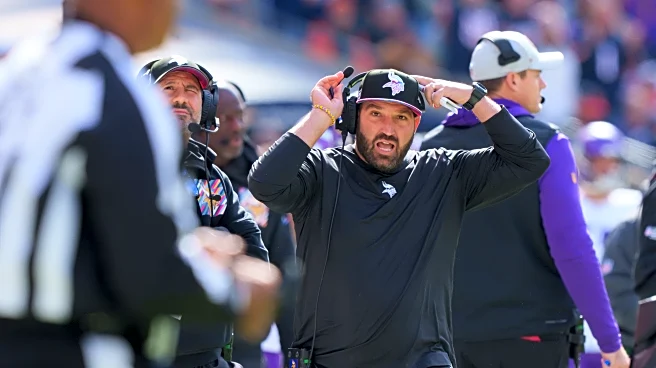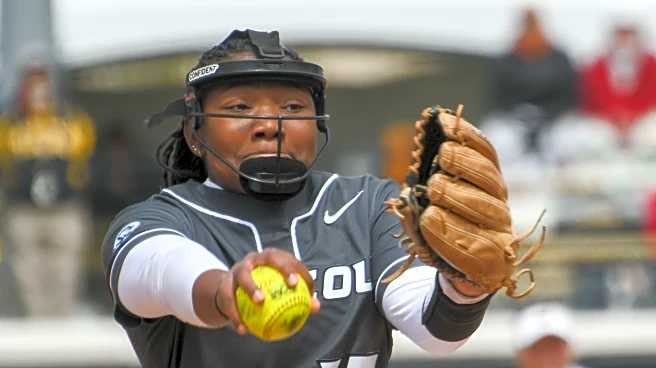What's Happening?
LaLiga players have initiated protests against the league's decision to hold a regular-season game between Barcelona and Villarreal in Miami. The protests began on Friday, with players pausing for 15 seconds
at the start of the Real Oviedo vs. Espanyol match. This action was not broadcasted live, as the television feed cut to the stadium's exterior during the protest. The Spanish soccer players' union announced that protests would occur at the start of games from Friday through Monday. The union criticized LaLiga for a lack of transparency and dialogue regarding the decision to play a game in the United States. Despite the union's stance, Barcelona and Villarreal players were not asked to participate in the protest, although they reportedly share the union's concerns.
Why It's Important?
The decision to hold a LaLiga match in Miami is significant as it represents a strategic move by the league to expand its presence in the American sports market. LaLiga president Javier Tebas has defended the decision, citing potential long-term revenue growth and increased television rights value. However, the move has faced criticism from players and coaches, including Barcelona's coach Hansi Flick, who expressed dissatisfaction with the added travel burden. The protest highlights ongoing tensions between players and league management over international expansion and its impact on player welfare and scheduling.
What's Next?
The match is scheduled to take place at Hard Rock Stadium in Miami Gardens on December 20. LaLiga plans to make international matches an annual event, aiming to boost its global profile. The league has arranged charter flights for an estimated 2,000 to 3,000 fans from Villarreal to attend the game. As the date approaches, further reactions from players, clubs, and fans are expected, potentially influencing future decisions on international matches.
Beyond the Headlines
The protest underscores broader issues within professional sports regarding player welfare and the commercialization of leagues. The decision to play abroad raises questions about the balance between financial interests and the physical and mental health of players, who face increasingly demanding schedules. This development may prompt discussions on the ethical considerations of expanding sports leagues internationally.











